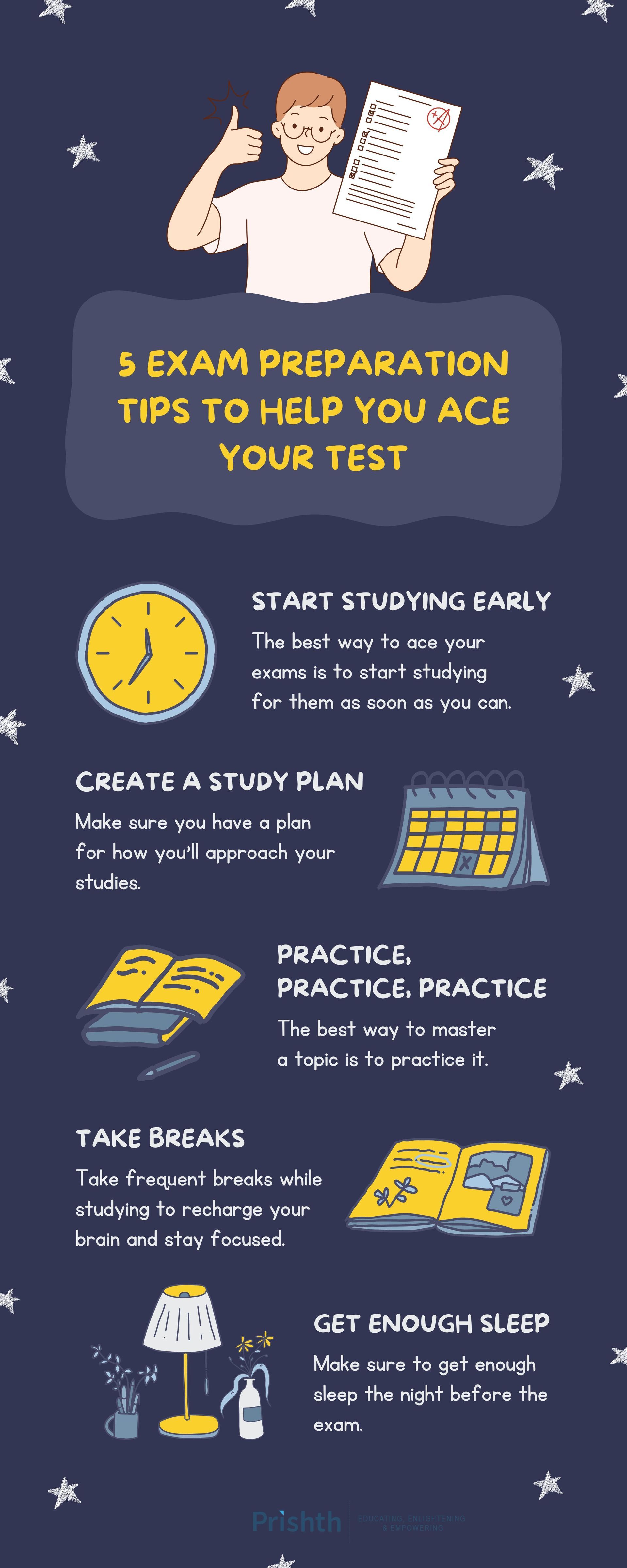One Word Substitution - Preparation Tips, Types, Examples
One-word substitutions are an important tool for students preparing for government exams. These substitutions allow students to replace longer phrases with a single word, which can save time and increase accuracy on exams.
In this blog post, we will explore the concept of
one-word substitutions and their importance in government exam preparation.

What are One-Word Substitutions?
One-word substitutions are
words that can be used to replace longer phrases or sentences. These substitutions can make language more concise and precise. For example, instead of saying "a person who studies birds," we can use the one-word substitution "ornithologist."
Examples of one-word substitutions include "philanthropist" for "a person who loves humanity and donates to charitable causes," "misogynist" for "a person who hates women," and "pacifist" for "a person who believes in peaceful solutions to conflict."
Benefits of Using One-Word Substitutions in Government Exams
Using one-word substitutions in government exams can have many advantages. These substitutions can help students save time by allowing them to quickly replace longer phrases with a single word. This can be especially helpful in exams where time is limited.
One-word substitutions can also increase accuracy on exams. By using the correct substitution, students can ensure that they are conveying the intended meaning and avoiding ambiguity.
In addition, using one-word substitutions can help students score higher on vocabulary and comprehension sections of the exam. These sections often test a student's ability to understand and use advanced vocabulary, and using one-word substitutions can demonstrate this skill.
Tips for Using One-Word Substitutions Effectively
While one-word substitutions can be a powerful tool for government exam preparation, they must be used effectively to be beneficial. Here are some tips for using one-word substitutions effectively:
- Consider the context:
One-word substitutions must be used in the correct context to be effective. It is important to understand the meaning and usage of the substitution before using it in an exam.
- Avoid overuse:
Overusing one-word substitutions can lead to confusion and reduce the effectiveness of the substitution. It is important to use substitutions only when they improve the clarity and concision of the language.
- Practice: Like any skill, using one-word substitutions effectively requires practice. Students can improve their speed and accuracy by practicing identifying and using one-word substitutions in exam-style questions.
Categories of One-Word Substitutions in English Grammar:
- Study-related
- Terms-related
- Profession/Occupation
- Science/Research
- Likes/Dislikes
- People/Group/Collection
- Government/Political Systems-related
- Venue/Spots
- Sound/Event
- Killing/Death-related
- Fear Related
One Word Substitution For Study-Related Terms
| Study-related term | One-word substitution |
|---|---|
| A person who studies the structure of the earth | Geologist |
| A person who studies the behavior of animals | Zoologist |
| A person who studies the stars and celestial bodies | Astronomer |
| A person who studies the environment and natural resources | Environmentalist |
| A person who studies the human mind and behavior | Psychologist |
| A person who studies the physical properties of matter | Physicist |
| A person who studies the origin and development of language | Linguist |
| A person who studies the principles and techniques of communication | Communicator |
| A person who studies the origin and development of human societies | Sociologist |
| A person who studies the past events and human activities | Historian |
| A person who studies the structure and function of the human body | Anatomist |
| A person who studies the use of words and their meanings | Lexicographer |
| A person who studies the science of numbers and their operations | Mathematician |
| A person who studies the behavior and interaction of electrons and protons | Electromagnetist |
| A person who studies the principles of economy and production | Economist |
| A person who studies the composition and properties of chemicals | Chemist |
| A person who studies the relationship between organisms and their environment | Ecologist |
| A person who studies the art of creating and designing buildings | Architect |
| A person who studies the production and distribution of goods and services | Businessman |
| A person who studies the science of the earth's physical features and processes | Geophysicist |
| A person who studies the science of the mind and its processes | Neuropsychologist |
| A person who studies the origin and history of words | Etymologist |
| A person who studies the creation and analysis of computer systems | Computer scientist |
| A person who studies the science of plants and their growth | Botanist |
| A person who studies the processes and materials used in manufacturing | Industrialist |
| A person who studies the design and construction of machines | Engineer |
| A person who studies the principles and techniques of teaching | Educator |
| A person who studies the principles of law and legal systems | Jurist |
| A person who studies the science of sound and its properties | Acoustician |
One Word Substitution For
Government/Political Systems - Related
| Government/Political System Term | One-word substitution |
|---|---|
| A state of disorder due to absence or non-recognition of authority or other controlling systems | Anarchy |
| A form of government in which power is held by the nobility | Aristocracy |
| Rule by a single person with absolute power | Autocracy |
| A system of government based on religious authority | Theocracy |
| A system of government in which the people have the power | Democracy |
| A system of government in which power is held by a few people | Oligarchy |
| A system of government in which power is held by a small group of people | Plutocracy |
| A form of government in which power is held by one person or a small group for personal gain | Kleptocracy |
| A system of government in which a monarch serves as head of state within the parameters of a constitution | Constitutional Monarchy |
| A system of government in which the state owns and controls the means of production | Communism |
| A system of government in which the means of production are owned and controlled by individuals and corporations | Capitalism |
| A system of government in which a dictator has complete control over the government and the lives of the people | Totalitarianism |

One Word Substitution For Killing/Death-Related
| Killing/Death | Word |
|---|---|
| A solemn procession, especially for a funeral | Cortege |
| A poem of serious reflection, typically a lament for the dead | Elegy |
| A phrase or form of words written in memory of a person who has died | Epitaph |
| Killing of one’s son or daughter | Filicide |
| Destruction or abortion of a fetus | Foeticide |
| Killing of one’s brother or sister | Fratricide |
| Killing of a large group of people | Genocide |
| The act of killing a king or queen | Regicide |
| The killing of a parent | Parricide |
| Killing a group of people, usually by surprise | Massacre |
| Killing of one’s wife | Uxoricide |
| The killing of a newborn | Infanticide |
| The killing of a government official or politician | Assassination |
| A substance that causes death or injury when introduced into the body | Poison |
| The killing of a whole family | Familicide |
| The act of killing a human being | Homicide |
| A person who kills his or her spouse | Mariticide |
| The act of killing one’s own father | Patricide |
| The act of killing one’s own mother | Matricide |
| Killing of a baby that has been born alive | Neonaticide |
| The act of killing one’s teacher | Didacticide |
| Killing of one’s servant | Domatocide |
| The killing of one’s own child | Prolicide |
| The act of killing one’s own master or employer | Agricide |
| Killing of a human being for religious reasons | Sacrifice |
| The act of killing one’s own friend | Amicicide |
| The killing of a woman by a man | Femicide |
| The killing of a person by hanging | Lynching |
| The killing of a person in order to steal their property | Robbery-murder |

One Word Substitution For Likes/Dislikes
| Definition | Word |
|---|---|
| One who has a high opinion or respect for someone or something | Admirer |
| One who strongly dislikes or hates something or someone | Detester |
| One who has expert knowledge or appreciation of a particular subject, especially in the arts | Connoisseur |
| One who hates or has a strong dislike towards women | Misogynist |
| One who dislikes or has a general hatred towards humanity | Misanthrope |
| One who has an excessive or prejudiced loyalty or support for their own gender, group, or country | Chauvinist |
| One who talks excessively about oneself or has an excessively high opinion of oneself | Egotist |
| One who loves good or pleasant things | Euphile |
| One who attacks or criticizes cherished beliefs or institutions | Iconoclast |
| One who opposes or is resistant to new technologies or technological change | Luddite |
| One who enjoys or finds pleasure in pain or suffering | Masochist |
| One who has an obsession with power or grandiose delusions of one's own importance | Megalomaniac |
| One who has a sentimental longing or affection for the past | Nostalgist |
| One who has a positive outlook or expectation for the future | Optimist |
| One who has a negative or gloomy outlook or expectation for the future | Pessimist |
| One who habitually delays or postpones tasks or actions | Procrastinator |
| One who has a fascination or obsession with fire | Pyromaniac |
| One who doubts or questions the validity or truthfulness of something | Skeptic |
| One who endures pain or hardship without showing emotion or complaining | Stoic |
| One who flatters or seeks to gain favor through excessive praise or attention | Sycophant |
| One who abstains completely from alcoholic drinks | Teetotaler |
| One who derives sexual pleasure from observing others without their consent | Voyeur |
| One who has a strong dislike or fear of people from other countries or cultures | Xenophobe |
| One who has a sexual attraction or preference towards animals | Zoophile |
| One who has a deep appreciation for beauty in art or nature | Aesthete |
| One who has a selfless concern for the welfare of others | Altruist |
| One who has a distrustful or sarcastic view of human nature or motives | Cynic |
| One who is passionate about environmental activism and conservation | Eco-warrior |
| One who seeks pleasure and enjoyment in life | Hedonist |
One Word Substitution For Fear Related
| Definition | Word |
|---|---|
| An extreme fear of public or crowded places | Agoraphobia |
| An extreme fear of spiders | Arachnophobia |
| An extreme fear of small, enclosed spaces | Claustrophobia |
| An extreme fear of clowns | Coulrophobia |
| An extreme fear of darkness or night | Nyctophobia |
| An extreme fear of heights | Acrophobia |
| An extreme fear of blood | Hemophobia |
| An extreme fear of death or dying | Thanatophobia |
| An extreme fear of snakes | Ophidiophobia |
| An extreme fear of darkness | Achluophobia |
| An extreme fear of germs or contamination | Mysophobia |
| An extreme fear of the number 13 | Triskaidekaphobia |
| An extreme fear of clustered holes or irregular patterns | Trypophobia |
| An extreme fear of failure or defeat | Atychiphobia |
| An extreme fear of being alone | Autophobia |
| An extreme fear of insects | Entomophobia |
| An extreme fear of public speaking | Glossophobia |
| An extreme fear of being alone or solitary | Monophobia |
| An extreme fear of flying | Pteromerhanophobia |
| An extreme fear of social situations | Sociophobia |
| An extreme fear of making or receiving phone calls | Telephonophobia |
| An extreme fear or dislike of people from other countries or cultures | Xenophobia |
| An extreme fear of riding in a car | Amaxophobia |
| An extreme fear of ghosts | Phasmophobia |
| An extreme fear of childbirth or pregnancy | Tokophobia |
| An extreme fear of flying or air travel | Aerophobia |
| An extreme fear of hospitals | Nosocomephobia |
| An extreme fear of water | Aquaphobia |
| An extreme fear of blushing or the color red | Erythrophobia |
One Word Substitution For People/Group/Collection Related
| Definition | Word |
|---|---|
| A group of people, typically with vehicles or animals traveling together | Caravan |
| A group of singers or performers who sing or speak together | Chorus |
| A small, exclusive group of people who share common interests or purposes | Clique |
| A group of similar things or people grouped closely together | Cluster |
| A group of people sharing a common characteristic, such as age or profession | Cohort |
| A group of witches or other practitioners of magic | Coven |
| A group of musicians, actors, or dancers who perform together | Ensemble |
| A group of birds or sheep | Flock |
| A group of people who associate together for criminal or other purposes | Gang |
| A group of cattle, deer, or other grazing animals | Herd |
| A large, unruly crowd of people | Mob |
| A group of wolves or dogs | Pack |
| A group of marine mammals, such as whales or dolphins | Pod |
| A group of fish or marine animals swimming together | School |
| A small group of people trained to work together, such as soldiers or police officers | Squad |
| A large group of insects or other small creatures moving together | Swarm |
| A group of people who work together to achieve a common goal | Team |
| A social group comprising of people who have a common ancestry, language, culture, or history | Tribe |
| A group of soldiers or scouts | Troop |
| A group of individuals or things that function together as a whole | Unit |
| A collection of live animals kept for display and study | Zoo |
| A group of guns or missile launchers operated together at one place | Battery |
| A large bundle bound for storage or transport | Bale |
| A large gathering of people of a particular type | Bevy |
| An arrangement of flowers that is usually given as a present | Bouquet |
| A family of young animals | Brood |
| A group of things that have been hidden in a secret place | Cache |




